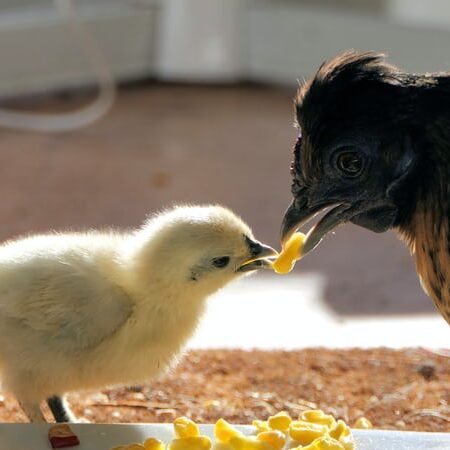As parents, we spend years training our children to be fully functioning adults by the time they’re ready to fly away from the comforts of their childhood home—aka “the nest.” At least, we think we should be guiding them toward this big event.
But is this parent-to-child training time something of days gone by? Is it really necessary to prepare children for their adult years? Or, is a better approach to “do as the birds do” with their young—provide a few basic instructions, and then trust that they’ll either fly or fall?
Real-life mom speaks out
I recently spoke with Trudy McDermott, an experienced mom who has two married daughters, and one more who is now “testing her wings.” We discussed Trudy’s experience over the past thirty years of preparing her girls for adulthood. Here’s what she had to say:
Q— What are some things parents can do to prepare their kids to leave the nest?
A— Well, my only experience has been in raising girls. I feel it’s important for women to know how to cook/prepare meals, clean the house, and do laundry because many of the household duties usually (but not always) falls on the females of the household. But even if they don’t marry, these things are still good and helpful for them to know how to do.
Q— What age is best to start training kids in doing household tasks for themselves?
A— I think it depends on the task. Simple ways of helping can begin in the preschool years around age three or four. Other tasks should be held off until the child is older and more developed in their physical stature. I would give these general guidelines:
- Cleaning bedrooms:
Start with having your preschooler pick up things in their bedroom each day (or probably multiple times each day). Dirty clothes go in the clothes basket, toys back to the toy shelves or container, and extra shoes should go in their closet (or a shoe cubby). Those are easy and do-able for preschoolers!
- Cooking/assisting with mealtimes:
Help with cooking should come in stages of maturity and physical development as well. Stirring cold/dry ingredients in a bowl could be done around age 4-5 but you should wait on asking their help with hot foods until they’re closer to 10-12 years of age. Setting the table with silverware and napkins could be done by older preschoolers (4-5 years old). They normally enjoy this task!
Children in younger elementary grades could start assisting with washing or rinsing dishes but should have adult supervision especially with glass or large, heavy items.
- Laundry:
The basics of laundry could start around kindergarten age (possibly younger) when your child can easily sort light-colored clothes from dark or red items. They can place clothes in the appropriate piles on the floor of the bedroom. By the time they’re preteen or teens, they can start doing a lot of their own laundry—especially during summer months when they have more free time.
Q—Should there be a progression of responsibilities? How does that work?
A— Yes, they can’t do everything at first. Start small. Have patience because they’ll drop things or slop stuff out of pans. This kind of teaching time requires a lot of patience! Parents often feel it’s easier to do these tasks themselves, but that’s not teaching or preparing kids to be out on their own.
Q—What have you learned about preparing your girls for leaving the nest?
A— It takes work! Looking back, I didn’t do it as well as I should have. I now wish I had been firmer about having them help with different tasks. Kids often have excuses (legit. or not) about helping with household chores such as, “I have homework/studying to do right now. I can’t help with dishes!” I wish I would’ve just made them do it more often because none of the tasks would’ve taken them very long to do. They could have easily done what I was asking and stayed up with their school work just fine!
Q— What would you change about the process if you had to re-do it?
A— I would be firmer about requiring them to help more. Kids would always rather sit around, watch TV, etc… I would advise parents to be specific with their children about expectations such as, “Go make your bed right now.” Or “Go vacuum your room before you watch another show on TV.” Each child is different in the way he may do things. One might need it written down for certain chores. Another child may be told what to do and will go do it immediately. Know your child and how he responds to things, and work accordingly.
Q— Was the preparation more positive or not-so-much for your kids?
A— Learning to cook was difficult for my girls. They simply weren’t that interested in learning about how to prepare meals and such. However, teaching them good money management skills was easier—such as tithing for church and managing other monies when they started babysitting for others. We taught them how to set aside money for savings, and how much to keep on hand for spending.
Final comments from this Mama Bird—
Where parents lack training, kids will learn it in time. Don’t be too hard on yourself! Just do the best you can. Your [grown] children will learn more how-to’s when they get out on their own. Just love your kids and do the best you can in raising them. God will honor your intentions!

